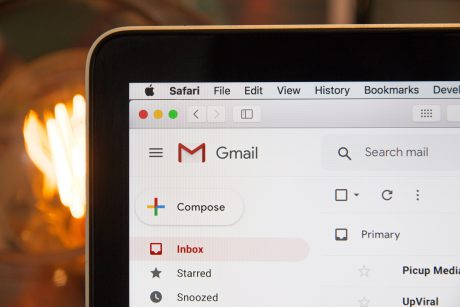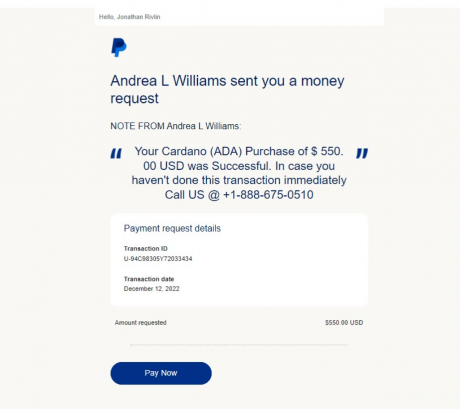
By Jonathan Rivlin, CPA, and Al & Christine Giovetti, CPA
[Ed. Note – Going forward, Jonathan Rivlin and Al and Christine Giovetti will be co-authoring some short articles for publication in various Maryland Society of Accounting and Tax Professionals newsletters and such. This is the first in that series. Please let us know if you have any tech questions that we can address for you!]
Phishing emails are getting more insidious. I received a different kind today. [Ed. note – I received a similar email. – Chris] It’s supposedly from PayPal, referencing a transaction I did NOT make and asking for money. A screenshot of the request is below.

A few items of note:
- The last name (Williams) doesn’t match the requester’s last name (this was in the address line of the email, which is not part of the screenshot above).
- The comma in the salutation is after the ‘Hello’ and not after the name (in small print, at the top).
- I had to look up Cardano – it’s a type of cryptocurrency.
- I Googled the 1-888 number and it did not come back as anything recognizable.
- The requester was asking for the funds to be sent in Mexican Pesos (again, not part of the screenshot, but in the email).
- I have no connection to anyone in Mexico or by the name of Andrea Williams.
I logged into my PayPal account – I went directly to PayPal, without clicking anything in the email – and found, under the tech support option, a message about phishing emails right at the top of the page, directing people to forward such emails to them directly and then delete the emails.
Like any phishing email, it falls apart pretty quickly upon even a little scrutiny, but if you’re rushing, it’s very easy to fall for it.
You see, this is why we can’t have nice things …
